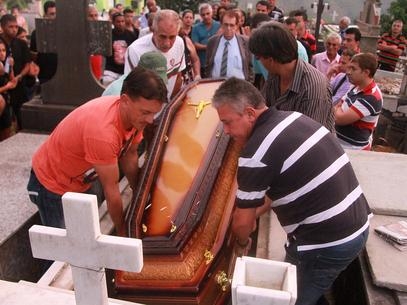The murder of the director of a Rio de Janeiro newspaper provides yet another example of the violence facing journalists in Brazil, although the motive behind his killing remains unclear.
Jose Roberto Ornelas de Lemos, who is also the son of the owner of the daily “Hora H,” was shot at least 44 times by a group of gunmen in the city of Nova Iguaçu, just outside Rio de Janeiro, reported EFE. Lemos’ father said his son was the subject of death threats prior to his murder.
A police official told various media that there are several possible motives for the crime, but currently their main hypothesis is that the “combativeness” of Lemos’ paper reportedly made him many enemies. Hora H is well-known for its reports on organized crime and corruption among police and politicians, reported the Los Angeles Times.
Still, there are lingering questions. In 2003, Lemos himself was accused of ordering the hit that killed Kenedi Jaime de Souza, then Assistant Secretary for the government of São João de Meriti, reported O Dia.
InSight Crime Analysis
While the criminal allegations made against Lemos in the past raise the possibility there may have been murkier reasons for his death, his murder highlights the alarming trend of violence against journalists in Brazil. Since 1992, there have been 27 journalists murdered for their work in Brazil, according to the Committee to Protect Journalists, eleven of those deaths coming in the past three years alone. This three-year murder spree has seen Brazil to jump to 10th on the Committee to Protect Journalists’ 2013 press violence Impunity Index, and has caused concerns about the impact of the rising violence on press freedom, particularly in provincial towns and rural areas.
The fatal shootings of two journalists in one week in February prompted human rights officials in Brazil to urge the legislature to strengthen the laws against contract killings and death squads known as militias. Currently impunity is extremely high for suspected militia killings, and given that these groups are often made up of current or former police officers, regional authorities exert little effort to investigate their crimes.

